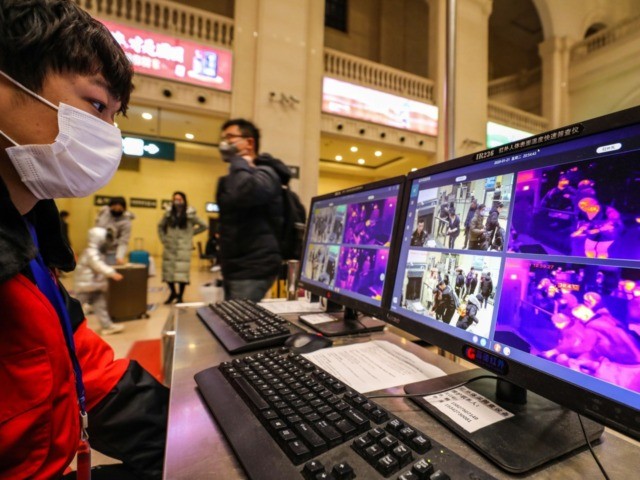The mayor of Wuhan, a city of 11 million in central China where a new form of coronavirus spreading globally originated, told potential visitors to avoid the city Tuesday as health officials warned the virus could mutate the more rapidly it spreads.
The virus surfaced in December, but Chinese health officials only identified it as a form of coronavirus this month. Communist Party spokespeople have told reporters the suspected source of the virus remains a seafood market in Wuhan, but they have failed so far in identifying the specific source, which means residents may still be exposed to the origin of the virus as well as infected people.
As of early Wednesday, Global authorities have identified 481 cases of the novel coronavirus, the vast majority within China. Hong Kong, Taiwan, Japan, Thailand, South Korea, and the United States have all identified one case. Nine patients, all in China, have died. The virus triggers respiratory illness and, ultimately, pneumonia in patients; those most at risk are the elderly and people with previously existing medical conditions.
Mayor Zhou Xianwang of Wuhan appeared on Chinese state television Tuesday to urge people to limit travel to and from Wuhan to prevent the virus from spreading further.
“The mayor of Wuhan, Hubei province, called on people not travel to and from the city in order to combat the ongoing pneumonia outbreak,” the state-run newspaper China Daily reported. “Mayor Zhou Xianwang said during an interview with CCTV on Tuesday that reducing the flow of people will also decrease the possibility of the virus spreading and lighten the pressure on disease prevention and control efforts.”
Zhou said that Wuhan had implemented mandatory temperature scans at points of entry – Wuhan is a transportation hub with a three major train stations, through which 700,000 people pass a day, and an airport – and a “prevention and control center” to exclusively treat patients. Wuhan is also inspecting anyone entering or leaving the city with any live animals in an attempt to find the original source of the virus and contain it.
The new infection has surfaced immediately prior to the most high-traffic travel day in Asia: Lunar New Year, which will fall on Saturday this year. Zhou noted that Wuhan is canceling its celebrations to prevent the virus from spreading at densely populated public assemblies, and has postponed subsequent Spring Festival celebrations until the Communist Party feels confident that the virus is no longer a threat.
China’s National Health Commission warned on Wednesday that, far from containing the virus, its rapid spread could trigger mutations that make it more resilient.
“The contagious virus can spread among communities to a certain extent mainly through respiratory infection, and it is likely to be mutated, as the pneumonia epidemic is at a risk of further spread,” China’s Global Times propaganda outlet noted, citing remarks at a press conference by health commission vice head Li Bin. Li announced that Beijing would “restrict” all public assemblies and prevent individuals from exiting or leaving Wuhan if “unnecessary.”
The South China Morning Post also reported that the National Health Commission has significantly expanded hospital quarantine powers, essentially allowing health officials to detain any individual they claim has symptoms of carrying the virus.
“The National Health Commission (NHC) has authorized hospitals nationwide to quarantine any suspected carriers of the virus and their close contacts, even against their will,” the newspaper reported.
Zhong Nanshan, a Chinese infectious disease expert, told reporters on Tuesday that “quarantine must be the first priority” now that proof exists of person-to-person transmission, adding, “at the moment, I don’t think quarantine has been implemented thoroughly enough.”
In early January, when the virus had not yet had its genome sequenced but suspected cases had already arrived in Hong Kong, the local government greatly expanded quarantine powers, causing concern given the growing evidence of rampant police brutality against peaceful pro-democracy protesters. While not yet used widely, the new powers could negatively affect the ongoing protest movement against the Communist Party in that city, which regularly attracts over 100,000 people to demand China not attempt to illegally impose communist laws there. Mass assemblies like the Hong Kong protests could grant the virus easy access to large populations at once, triggering an epidemic.

COMMENTS
Please let us know if you're having issues with commenting.